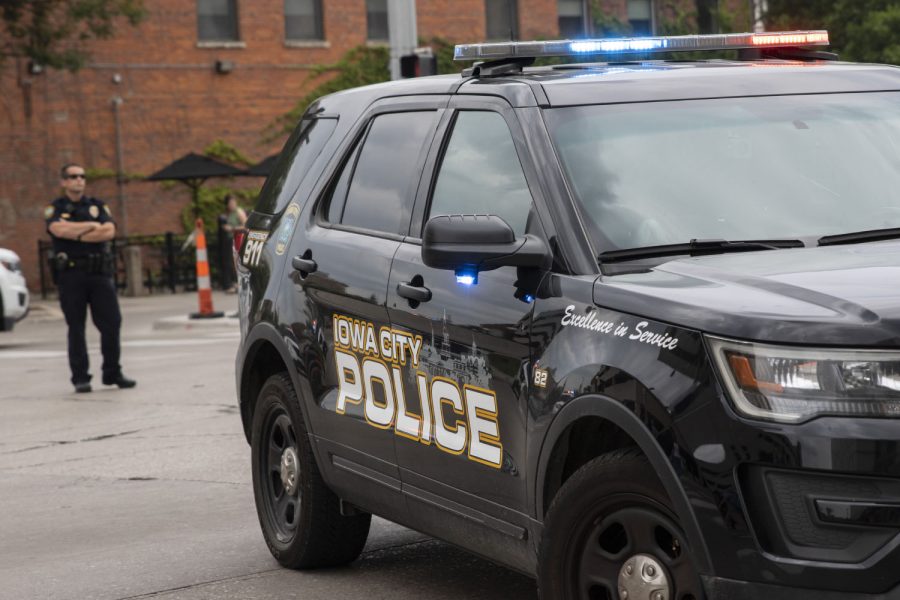Proposed bill in Iowa would require bystanders to call authorities
A bill that has cleared the legislative funnel in the Iowa Legislature this week — a key legislative deadline that filters bills — would charge those who fail to call authorities in dangerous situations with an aggravated misdemeanor.
An Iowa City Police Department vehicle is seen on July 9, 2019.
March 4, 2021
A bill approved by the Iowa Senate Judiciary Committee would add criminal penalties for people who fail to call authorities when witnessing dangerous situations.
The bill was introduced by Sen. Brad Zaun, R-Urbandale, following the drowning of Noah Herring, a 15-year-old Tiffin resident, in Coralville Lake in April of 2020. Of the three teenagers and the adult who accompanied Herring, none of them called authorities upon his death.
Johnson County residents and University of Iowa students are divided on how necessary the legislation is and how it would be enforced.
Under this legislation, a person could be charged with an aggravated misdemeanor if they fail to assist someone in need of help or emergency assistance. The state of Iowa does not have existing legislation that requires bystanders to report dangerous situations to the police.
The bill, Senate File 243, passed through committee in February and is eligible for debate on the floor.
Some residents of Johnson County are optimistic about the bill and hope that the legislation enforces civic responsibility. If charged with an aggravated misdemeanor, a person could face up to two years in jail and a fine of at least $855, according to the bill.
RELATED: Gov. Kim Reynolds signs bipartisan police reform bill
“Hopefully this legislation will compel a person to call 911 when someone is in a life-threatening emergency and hold them accountable should they fail or refuse to do so,” Johnson County Sheriff Brad Kunkel wrote in an email to The Daily Iowan.
With the bill, police will investigate whether a situation required reporting.
“Law enforcement will have to investigate all of the facts and circumstances before making a charging decision,” Kunkel wrote.
Some university students do not see the need for such a bill. UI College of Law student Emily Tosoni, the co-president of the UI American Constitution Society, said the need for the bill boils down to an issue of morality.
“We always want people to do what’s best and try to help someone out, but I think it’s always tricky trying to turn what has always been historically a moral choice into integrating legal consequences into it,” Tosoni said. “In theory, I agree that people should call 911, so I am sort of seeing both sides of it.”
Tosoni added that there is a possibility for racial inequality, as students of color may feel hesitant to call authorities.
“I am not a person of color so I am not trying to speak for that community, but I do think that there might be more of an issue of them wanting to call the authorities if there is an issue just based on current climates,” Tosoni said.
UI freshman Sabrina Hubbard, who has been following the bill, questioned how police will track down bystanders, especially at busy places such as college campuses.
“It may be difficult to track individuals who are bystanders because it’s a college campus where everyone has things to do and everyone is on the move,” Hubbard said.
Hubbard also fears linking herself to a hazardous situation that she was otherwise not involved in.
“As a Black person, I am generally always hesitant to call or interact with the police given our generally volatile relationship,” Hubbard said. “I don’t want to have any potential issues with the police especially depending on the issue.”






